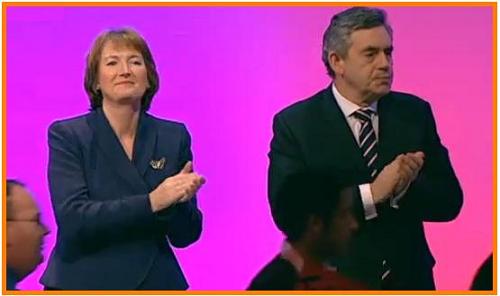Is Harriet the one to watch?

Will she really allow an all-male shortlist?
The Labour leadership contest is being dominated in the early stages by David Miliband, who is heavily odds-on with all outlets. While the usual rule for Labour Leadership elections is that the favourite wins, there just look to be too many variables at the moment to justify such short odds on the former Foreign Secretary.
Perhaps the biggest variable is what the field will be. Other than the Milibands, there are no other formally declared candidates though Cruddas appears close to throwing his hat into the ring. Beyond that, we’re in the realms of speculation.
One thing that unites all the most prominent candidates at the moment is their gender: Milibands D & E, Balls, Burnham and Cruddas are all men. Yvette Cooper would be the most obvious potential female candidate from the younger generation but she’s highly unlikely to stand if Balls does. So where does that leave Harman, who has tirelessly championed the advancement of women in politics?
Quite apart from being a female name on the ballot paper, Harman ought to be a formidable candidate in her own right. Elected deputy leader in 2007 – an achievement that shouldn’t be overlooked in the circumstances – she’s avoided being associated with the worst excesses of Brown’s government even if her attitude during her driving conviction won’t have helped her case.
While her stridency in advocating her ‘equality’ agenda will be off-putting to some, it does at least demonstrate what she stands for. Apart from Cruddas, how many of her potential opponents have an equally-well publicised policy base? There may be a sense that they either don’t really want it enough or they want it for the wrong reasons (to be rather than to do).
Harman’s position as temporary leader also gets her out of her commitment not to contest the leadership while she was deputy. Indeed, all her comments about standing (or not) for the election leave enough room for manoeuvre should she decide to go for it. Harman will also gain from the additional profile that a leader gets, providing she can make best use of it. She’ll be first to respond to the Queen’s Speech (and unlike most years, there’ll be no Lib Dem leader responding); she’ll be putting the questions to Cameron at PMQ’s. It’s a trial run at the job that no-one else will get.
One problem with Labour Leadership elections is trying to read the complex nature of the electoral college and its multiple-round process. While the support of party members matters, unlike the Tories and Lib Dems it’s not of overwhelming importance: unions and MP’s matter just as much. Harman again has strong connections in both sections.
But it all comes back to the big question of whether she’ll stand at all. She may not. Her privileged background could be a hindrance, she’s got something of a chequered record as a minister and had two spells out of the cabinet during Labour’s time in government, being sacked in 1998 and resigning in 2006. She’ll also be sixty in the Summer: older than any Labour leader since Foot and an obvious contrast with Cameron and Clegg, whose rises have been meteoric (Cameron’s nine years from entering parliament to No 10 is the fastest since Pitt; Clegg has been in the House for even less time).
Betting ultimately comes down to value. Bet365 is offering 33/1 for Harman and better odds can be found for small amounts on Betfair (I’ve backed her at 64/1). Several bookies don’t even list her on their websites. If she stands, she should be a much stronger candidate than those odds imply – and the dynamics are that she should stand.